The Importance of Letting Your Baby Play on the Floor
Are you wondering if it’s safe to let your baby play on the floor? Do you think he’s too young or that it’s too risky? Read this and find out the benefits of floor-time for babies.
Baby Developmental Milestone
Your little bundle of joy is exciting and amazing you every day. The new skills and experiences are teaching your baby a number of life lessons. With the passing months, there are a few developmental milestones that you need to be aware of. Be it tummy time or rolling over, you need to be on your feet and wait for your little one to cross over.
Some examples of developmental milestones are:
- Your baby will roll over using his tummy at around 4-5 months.
- The little one will sit upright by the end of 6 months.
- Crawling movements begin by 8 months.
While these are only a few of the milestones your baby will accomplish, it is important to keep an overall view on your little ones physical and cognitive development. You need to put in some extra effort to aid your baby with certain development milestones. Do you refrain from letting your baby have ‘playtime’ on the floor? If you do, it must be one of the following popular reasons to do so:
- “My baby hates the tummy time and there’s nothing we can do about it.”
- “Our floor texture is not safe enough.”
- The pets rule the floor
- Too scared to leave your little one on the floor
One thing that is crystal clear through research is that your baby needs time in the floor. It is a fact that if a baby is denied floor play, there may be severe physical deficiencies. So, what are the possible threats and what can you do to prevent them?
When Can Baby Start to Play on the Floor?
According to Pathways, babies around 2-3 months old become more awake and ready to play on the floor. During this time, they even start lifting their heads during tummy time, which helps them explore their surroundings. The benefits of floor time activities for infants continue until they are 7 to 9 months old when they begin crawling (1).
How Much Time Should Your Baby Play on the Floor?
There is no specific timeline for floor play for babies. However, this rough guide can be beneficial for you
| Age | Duration |
| Newborns to 2 months old | Min of 30 minutes per day |
| 2 to 4 months old | Min of 45-90 minutes per day |
| 4-6 months old | Min of 1-2 hours per day |
| 6-8 months old | A good chunk of waking hours will be spent in tummy time or sitting |
Benefits of Letting Your Baby Play on the Floor
Here are some commonly observed benefits of floor time for infants:
1. Skull Development
Initially, your baby will spend a lot of time lying down in the swing or crib. This makes the back of head flatten out. This is not normal and after a specified time and can lead to brain defects. A break from the usual position like tummy time or holding your baby will allow the skull to mould into a normal shape.
2. Spatial Awareness
When you let your baby feel the floor and play over it, it actually will build spatial awareness in your little one. The little one will understand and learn to recognize the space better and eventually become aware of obstacles like tables, couches or steps around.
3. Muscle Build Up and Confidence
Solo play time on the floor will give you an immense amount of time for your little one to learn about his own body. When you lay your baby down tummy-first on the floor, his first reaction will be to avoid his head hitting the floor. Your baby will push the head up while pushing his upper body up with his arms. This helps with muscle development and strengthens the neck, too.
4. Act of Balancing
Your little one will learn the act of balancing while on the floor. It will be a natural phenomenon that your baby will tend to move sideways, back or front, while spending time on his tummy or back.
How to Encourage Your Baby to Play on the Floor?
To begin with playing on the floor, it is best it keep is super simple by having them on the floor and keeping them engaged.
- Tummy time on the floor is good. Talk to them and show them colourful toy or make faces in front of them so they are promoted to look at their surroundings and lift their head.
- Use floor mats. Do not let them play on the bare floor. Playgyms are a fantastic way of ensuring engagement and independent play.
- You can try baby games on the floor.
FAQs
1. What can I do to make floor play interesting and engaging for my baby?
Here are some super fun floor time activities for infants:
- You can lie down on the floor with your baby. Have your baby on their stomach so they lft their head. You can call them or make funny faces and noises to keep them entertained.
- Create a visionary wall for babies with vibrant colours and imageries, like giant aminal photos like lion, elephant, giraffe, etc., to encourage them to lift their head.
- Have a baby gym. Baby gym is full of features that may stimulate the baby to move more and observe things near them.
- Let them play with sensory toys like sensory water play mats, balls, stuffed animals, etc.
2. Why do babies hate floor play?
There could be numerous reasons behind your baby’s dislike for floor play. It could be:
- Your baby’s neck muscles haven’t strengthened yet because controlling their head could be a humungous task.
- They might be having stomach issues due to gas or reflux.
- They might be shocked by the change of the place or surroundings or from a change of being held to being on the floor.
- They might want to stay close to their caregivers
- They might be overstimulated or understimulated.
3. Is the floor a safe place for babies to play?
The floor is a perfect place for your baby to play. It may seem obvious, but many experts recommend babies spend more time on the floor—and less time in seats, swings, and strollers—to build muscle strength.
Don’t hesitate to keep your child on the floor; babies are created to adapt and learn and time on the floor helps in more ways than one. You will see a baby that’s developing muscle faster and learning new things and crossing milestones every day. That is indeed every mom’s wish for her baby!
References/Resources:
1. When and Why Baby Should Play on the Floor; Pathways.org; https://pathways.org/when-why-baby-play-on-floor/
Also Read:
Water Play for Babies and Toddlers
Significance of Play and Movement for Babies
Best Games to Play with Babies (0 to 12 Months Old)
Developmental Benefits Of Using A Baby Play Gym
Was This Article Helpful?
Parenting is a huge responsibility, for you as a caregiver, but also for us as a parenting content platform. We understand that and take our responsibility of creating credible content seriously. FirstCry Parenting articles are written and published only after extensive research using factually sound references to deliver quality content that is accurate, validated by experts, and completely reliable. To understand how we go about creating content that is credible, read our editorial policy here.






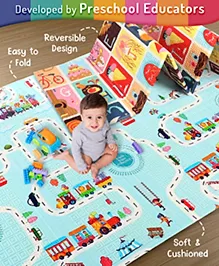
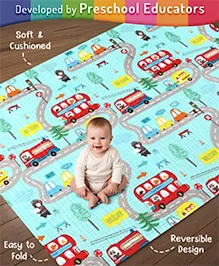
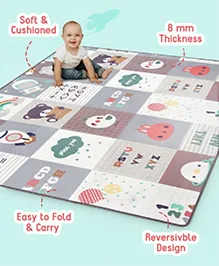
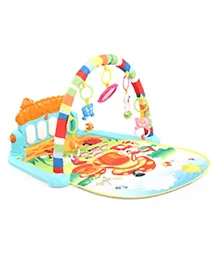
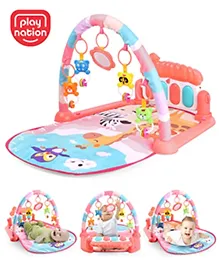
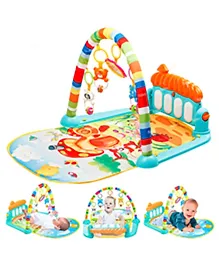

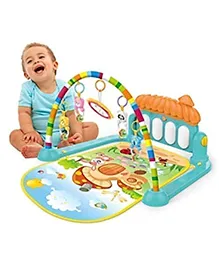
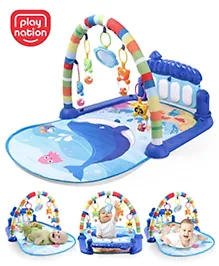
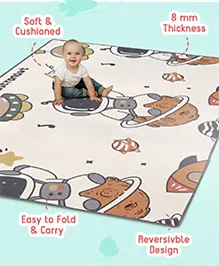
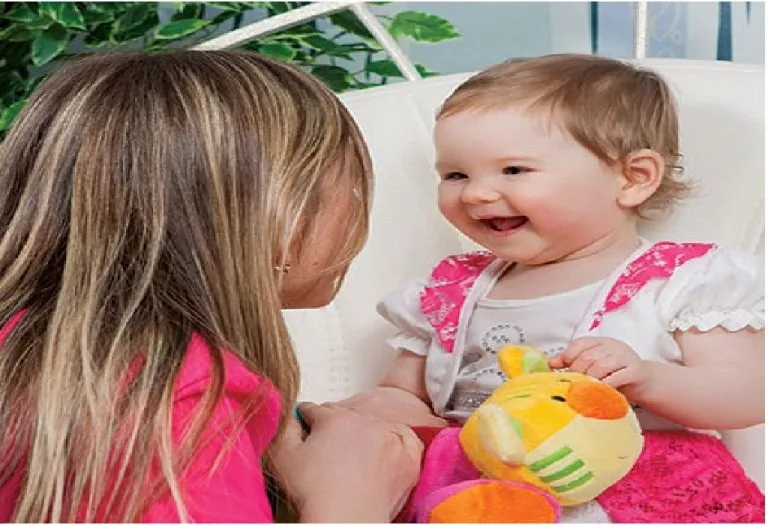
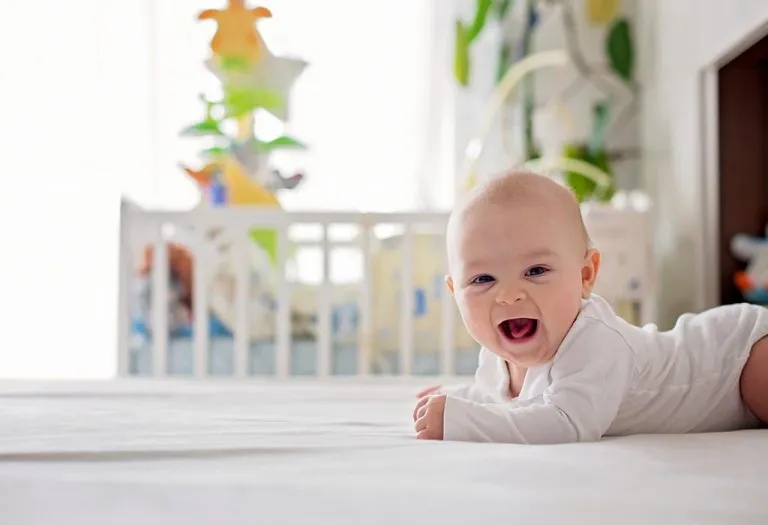





.svg)


















